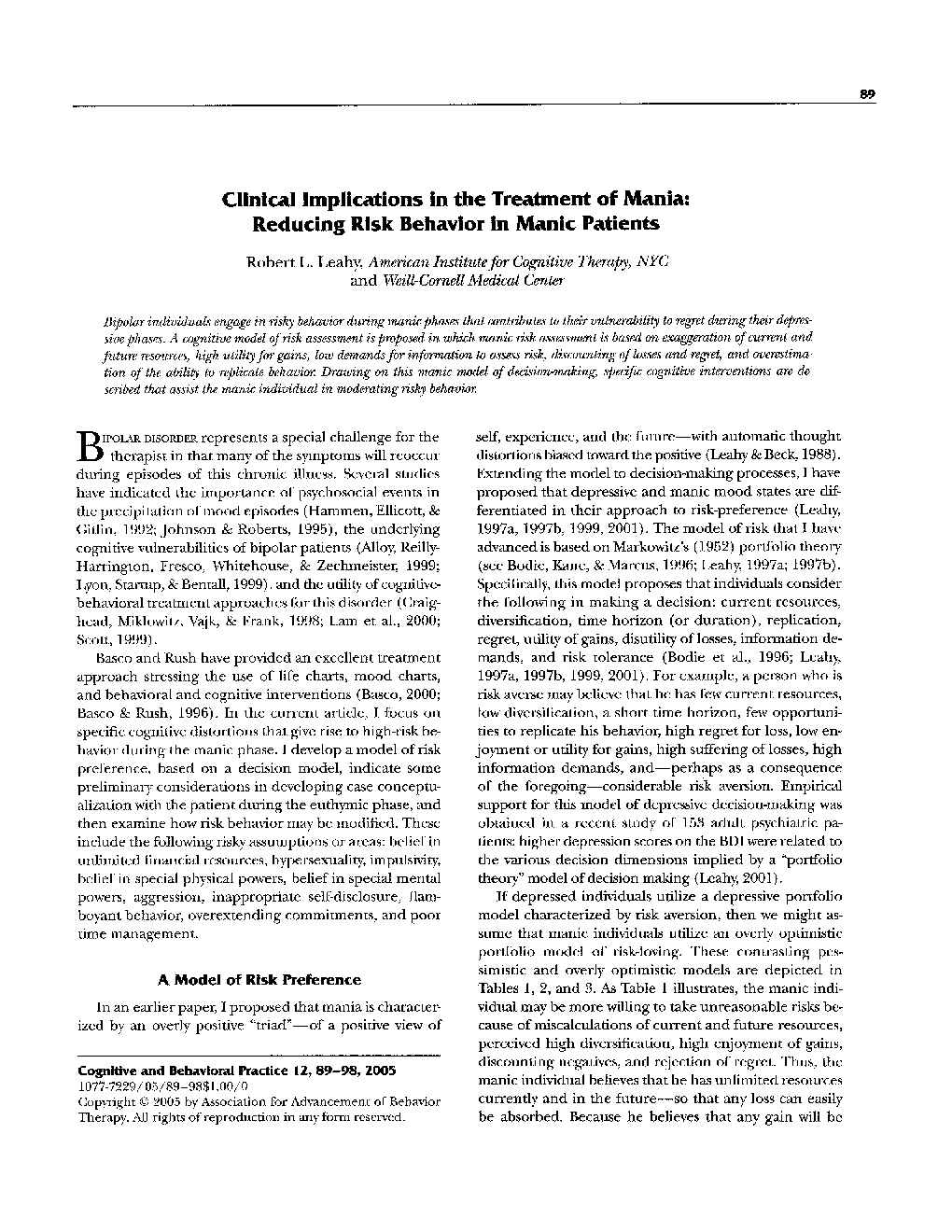| Article ID | Journal | Published Year | Pages | File Type |
|---|---|---|---|---|
| 10446284 | Cognitive and Behavioral Practice | 2005 | 10 Pages |
Abstract
Bipolar individuals engage in risky behavior during manic phases that contributes to their vulnerability to regret during their depressive phases. A cognitive model of risk assessment is proposed in which manic risk assessment is based on exaggeration of current and future resources, high utility for gains, low demands for information to assess risk, discounting of losses and regret, and overestimation of the ability to replicate behavior. Drawing on this manic model of decision-making, specific cognitive interventions are described that assist the manic individual in moderating risky behavior.
Related Topics
Health Sciences
Medicine and Dentistry
Psychiatry and Mental Health
Authors
Robert L. Leahy,
